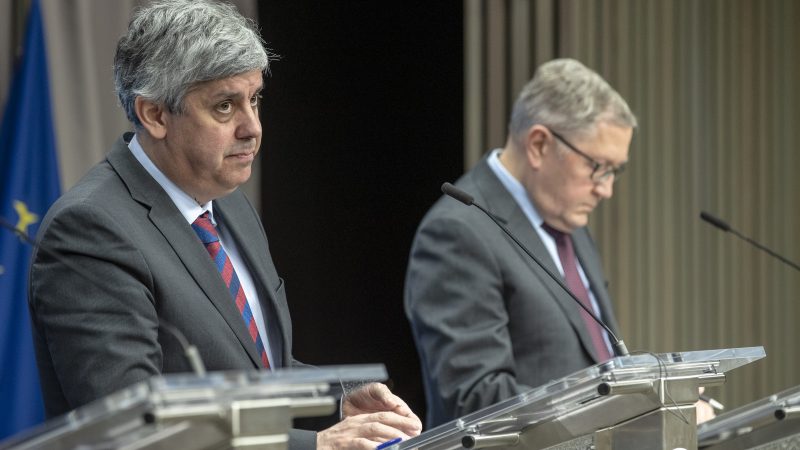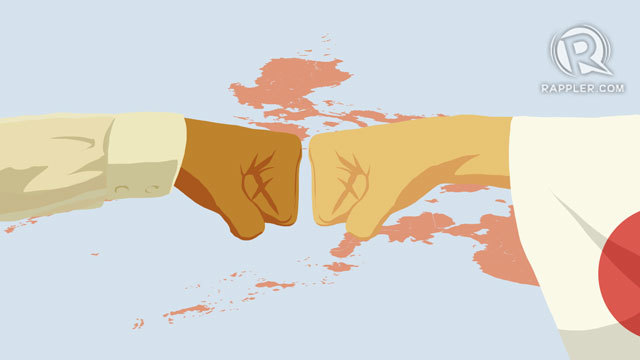
EurActiv (12 March 2019)
Eurogroup president Mario Centeno said late on Monday (11 March) that the future eurozone budget would not include a stabilisation function, despite insistance by France and a handful of other countries to broaden its scope.
The 19 finance ministers of the euro area (the Eurogroup) discussed in-depth for the first time the future fiscal instrument for the region.
The debate, in which finance ministers of the EU as a whole also took part, focused on how to spend the resources of the new budget.
A group of countries continued to defend the view that it should play a stabilisation function to cushion external economic shocks, as any proper budget would do.
However, Eurogroup President Mario Centeno said after the meeting that “it is not really in our package to take to the summit in June,” when the Eurgroup will report back to EU leaders.
Last December, EU leaders restricted the role of the future eurozone budget to supporting competitiveness and convergence among euro area economies. This vision was pushed by a group of countries led by the Netherlands.
Those member states are opposed to any new fiscal transfers in the euro area and believe it is national budgets, not the EU budget, that should play a stabilisation role.
Instead, the new instrument would cover the costs of structural reforms and investments in order to narrow disparities among eurozone economies and support their competitiveness.
Centeno said member states would propose the investment programes and reforms to be financed by the new instrument, in line with the priorities identified by the European Commission(under the so-called “European Semester” of economic policy coordination.
But the European Commission and a few EU countries including Spain, France and Slovakia, still want the new budgetary capacity to stabilise national economies in times of economic turbulence.
Many ministers “made the point that it needs to be able to mitigate the effects of economic shocks,” said the EU Commissioner for Economic Affairs, Pierre Moscovici. “In other words, it also needs to play a stabilisation role, even in some don’t like the word,” he explained.
Klaus Regling, the managing director of the eurozone’s rescue fund, the European Stability Mechanism, appeared to back this view. A counter-cyclical function that kicks-in during crisis times “could be a very useful byproduct” of the new instrument, he said.
In the markets’ view, “a monetary union without a budgetary instrument is incomplete,” he added.
Money for something
According to Centeno’s working plan, ministers will first discuss the expenditure side of the new fund and address the sources of revenues and governance at forthcoming meetings.
France and Germany put forward a proposal last month in which they called for additional contributions from member states outside the EU budget, contradicting the common position reached by EU leaders.
But Spanish minister of Economy, Nadia Calviño, said on her way to the Eurogroup meeting that “before discussing the elements of contribution we have to see what this euro zone budget would be used for (…) and to what extent it responds to the degree of ambition that we intend in this area.”
Sources in her team explained that Spain would only support additional funds from national governments to sustain national economies in times of economic shock, not for competitiveness and convergence.
Moscovici said he was not against fresh contributions from member states, but insisted that the new instrument “must provide added value”.
Those who call for more ambition in the new instrument, including the stabilisation function, are concerned that the new budgetary capacity would be similar to existing EU funds, such as regional policies.
Ambitious ideas such as a European unemployment insurance scheme are off the table for the time being, but the fund could still be used to sustain countries hit by economic turbulences, proponents say.
Centeno suggested there was still scope to reduce the share member states bring to the table “in case of severe downturns”.
Grants not loans
The Eurogroup president also explained that the preferred option among EU ministers was to deliver the funds in the form of grants rather than loans, although the latter enjoys “some support”.
Unemployment peaks to trigger new investment shield
A spike in unemployment numbers would give EU countries access to €30 billion of soft loans to maintain investment in times of economic turbulences, according to proposals unveiled by the European Commission on Thursday (31 May).
Last year, the Commission put forward a proposal to support competitiveness and convergence, and a second instrument to stabilise national economies when they face a downturn.
But the EU executive suggested a system of soft loans, instead of grants.
The Commission proposed at that time a total of €55 billion for both functions.
Centeno said on Monday that the finance ministers did not discuss any figure, indicating that the budget’s size will be addressed in May.
“I am very much convinced that, more important that discussing the size…it is the effectiveness of the instrument,” the Portuguese minister said, stressing the importance of Monday’s discussion.
The Franco-German proposal did not include any figure either.
“It is clear to me, as it is to many in the Eurogroup, that this new tool needs to have enough resources to make a real difference in terms of the areas targeted,” Moscovici said.
In the summer of 2017, French President Emmanuel Macron said that a eurozone budget should be worth “several points of the euro zone’s GDP”.
The eurozone budget was the French President’s flagship initiative to strengthen the euro when he was elected in 2017.
But following a year-long process of discussions, the EU leaders agreed on a limited package of reforms to bolster the economic and monetary union.
No comments yet.
- GERMANY AMBASSADOR THANKS MOD FOR ARMENIA PEACEKEEPERS’ WORK The Caucasus and Turkish-Armenian Relations 12.03.2019
- EPP MORE LIKELY TO EXPEL FIDESZ IF RIVAL GROUPS ALSO DITCH TROUBLEMAKERS Europe - EU 12.03.2019
- NORTH MACEDONIA'S PARLIAMENT ADOPTS ANTI-DISCRIMINATION LAW The Balkans 12.03.2019
-
 SIGNING OF ASEAN-JAPAN TRADE PROTOCOL: WHAT THIS MEANS FOR FILIPINOS
Asia - Pacific
12.03.2019
SIGNING OF ASEAN-JAPAN TRADE PROTOCOL: WHAT THIS MEANS FOR FILIPINOS
Asia - Pacific
12.03.2019
- AVIGDOR ESKIN: OPENING OF ARMENIAN EMBASSY IN ISRAEL IS A BREAKTHROUGH The Caucasus and Turkish-Armenian Relations 12.03.2019
-
25.01.2016
THE ARMENIAN QUESTION - BASIC KNOWLEDGE AND DOCUMENTATION -
12.06.2024
THE TRUTH WILL OUT -
27.03.2023
RADİKAL ERMENİ UNSURLARCA GERÇEKLEŞTİRİLEN MEZALİMLER VE VANDALİZM -
17.03.2023
PATRIOTISM PERVERTED -
23.02.2023
MEN ARE LIKE THAT -
03.02.2023
BAKÜ-TİFLİS-CEYHAN BORU HATTININ YAŞANAN TARİHİ -
16.12.2022
INTERNATIONAL SCHOLARS ON THE EVENTS OF 1915 -
07.12.2022
FAKE PHOTOS AND THE ARMENIAN PROPAGANDA -
07.12.2022
ERMENİ PROPAGANDASI VE SAHTE RESİMLER -
01.01.2022
A Letter From Japan - Strategically Mum: The Silence of the Armenians -
01.01.2022
Japonya'dan Bir Mektup - Stratejik Suskunluk: Ermenilerin Sessizliği -
03.06.2020
Anastas Mikoyan: Confessions of an Armenian Bolshevik -
08.04.2020
Sovyet Sonrası Ukrayna’da Devlet, Toplum ve Siyaset - Değişen Dinamikler, Dönüşen Kimlikler -
12.06.2018
Ermeni Sorunuyla İlgili İngiliz Belgeleri (1912-1923) - British Documents on Armenian Question (1912-1923) -
02.12.2016
Turkish-Russian Academics: A Historical Study on the Caucasus -
01.07.2016
Gürcistan'daki Müslüman Topluluklar: Azınlık Hakları, Kimlik, Siyaset -
10.03.2016
Armenian Diaspora: Diaspora, State and the Imagination of the Republic of Armenia -
24.01.2016
ERMENİ SORUNU - TEMEL BİLGİ VE BELGELER (2. BASKI)
-
AVİM Conference Hall 24.01.2023
CONFERENCE TITLED “HUNGARY’S PERSPECTIVES ON THE TURKIC WORLD"









